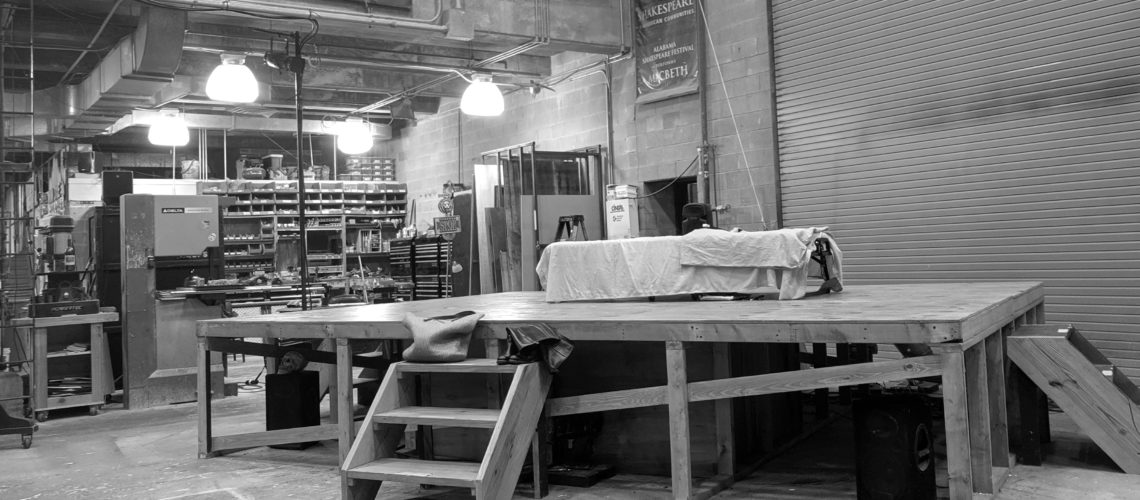I have a secret, if you promise not to judge me. This is a safe place and it’s my house so you have to not judge me.
Here it is: I’ve never seen Hamlet. I’m sure I was forced to read it at some point in high school when all those mean English and theatre teachers pin students down and force classics in front of their eyeballs. But I’ve never seen it played.
If you’re in the club with me, we can all keep being uncultured together, if we so choose. That’s fine. And if we want to change our heathen ways, Shakespeare Festival is conveniently showing Hamlet right now, and it’s probably the best rendition any of us will ever get the chance to see. I haven’t seen it, because I’m a monster.
But.
We can, and should, see the other thing. At The Other Place. The show is called BUZZ.
I saw the worldwide premier of it last night, which made me feel incredibly fancy. That, plus the tutu skirt I wore.
Over post-show drinks, my friend and I discussed the show as I retold the story to her, who thought I had gone to see something about Buzz Lightyear or maybe breaking news. Instead, the story is a real one about one of the only female directors living in the UK in 1975. Mary Ann “Buzz” Goodbody directed what is remembered as one of the best productions of Hamlet for her era. BUZZ illustrates what the road to Hamlet was likely like for her.
Shakespeare Festival, that sparkling treasure we don’t deserve, staged the play in a space as creative as something Buzz herself would have used. The production takes place in their actual scene shop, and the audience is treated with the gift of wandering through normally-closed doors to get there. The curtain is literally pulled back on Shakespeare Festival in the rawest of ways as you arrive in a space that seamlessly meshes a forged stage with actual sets in the process of being built. As you are sitting in the fully-lit room, waiting for the show to begin, you can let your mind wonder which parts of the room were constructed for this production and which are actually used to bring magic to life on other shows. Is that a real hammer, or a prop hammer?
The story winds you through eight years of Buzz’s life as we are enchanted with the portrayal of a woman who can best be described as a blend of Eliza Doolittle and Holly Golightly. Buzz was the living, breathing embodiment of an Audrey Hepburn character who knows something the rest of us don’t. She was cooler than me while simultaneously being tragically flawed. Her story of competing for validity in a man’s world is one every woman or minority knows all too well. The story is tender, but it is familiar.
The cast walks you through snippets of the life of a woman who should not be forgotten. As you are looking through the microscope, you wonder: who else do we forget to honor? How might we be able to retell history in a more accurate way?
I say this all in the past tense, because Buzz died before her time was up. The world didn’t know what it had when she was still alive, but Shakespeare Festival’s telling of her story is an attempt to make things right.
And don’t get me wrong: Buzz was accomplished, but her story isn’t just about forgetting a female director just because she’s female. It’s about a brilliant woman, who perhaps got as far as she did in part because her name wasn’t stereotypically feminine, who made significant contributions to theatre and died only just as we were starting to take notice. The story is one of challenge, endurance, and ultimately loss. Humor is tastefully sprinkled throughout the show to help the audience swallow the larger pills being handed to them.
The show ends with a humble bow in the intimate space, the lights are turned back on, and it is no longer 1975. We’re back in Shakespeare Festival’s scene shop, reflecting on what else Buzz would have gone on to accomplish if she had made it out of the 70’s alive, and how we can help better nurture the next Buzz who comes along.
Exiting the theatre, you wind your way back to the lobby at Shakespeare Festival, past those normally-closed doors, and transition back into reality. The same reality that created, and took away, Buzz Goodbody.
We can forgive each other, and ourselves, if we haven’t yet seen a classic like Hamlet. Buzz’s goal was to make it more accessible to normal people, because she got it. She knew what it was like to be underserved. And, she knew Hamlet simply couldn’t go unseen by uncultured swine like myself.
We can thank Buzz by being witnesses to her journey, and maybe also by seeing Hamlet. Those geniuses at Shakespeare Festival figured out that goofballs like you and me can’t keep going on without these stories, and have conveniently provided both shows at the same time for us to enjoy. My high school English and theatre teachers owe the directors at Shakespeare a thank you letter.
Tickets and show schedule to Alabama Shakespeare Festival are here. BUZZ and Hamlet are on now.

nailed it! I couldn’t have explained this play any better….I told my friends: “This isn’t your granddaddy’s theater production…they are definitely mixing things up at the ol’ Shakespeare Festival…” I wish this play could come back in March for Women’s History Month…definitely a trailblazer for women directors…gone too soon!